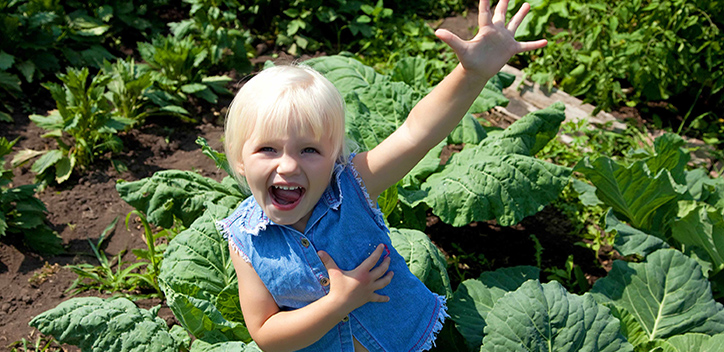Hi all, great to be here. I've been looking for somewhere to discuss my worries for quite some time now, and apologise that my very first post is based on negative feelings!
Bit of background history, me and my partner have been together for around 11 years. She had been a vegetarian since childhood, and it's something I adapted to after a few years of being together.
Six years ago we welcomed our first daughter into the world. We actually fed her some meat during her first 2 years because we had concerns whether or not being vegetarian was beneficial enough for a baby/toddler. However my partner decided after a few years that she felt meat was not necessary. But, when our daughter was a few months old, we began to notice her poo was always green and very liquified. We visited our doctor a few times who wasn't concerned and just said it was a virus/mild infection. However we then noticed blood, and we demanded to be referred to a paediatrician, who suggested that my partner cut out dairy because the symptoms matched up with a dairy intolerance passed through breast milk. We were also referred to a dietician who said when our daughter gets to weaning, we can challenge the intolerance by introducing mild dairy products. We did, and unfortunately the green diarrhea returned. My partner then decided she wanted to go dairy free full time, because she'd never liked the dairy industry - even though she loved cheese! I didn't mind because I grew to like the taste of soy milk, even though the cheese back then was horrid!
Fast forward to today, we have two daughters, and live mostly on a plant based diet except for eggs which we get from our own rescue hens - I know many vegans disagree with this, so sorry for upsetting people. We try really hard to make sure the children especially get calcium enriched foods, along with fortified foods, and we try and sneak in the good veg thats high in iron and folates that they tend not to like.
I have three areas where I'm concerned:
Both of our daughters are fairly small in comparison to friends. My eldest 6yr old is thinner than her friends, while my youngest (4) is quite short, although she is pretty solid and strong - something the teachers mentioned! My family always go on about how other kids are big and strong, and constantly question our decision to be vegan (apart from eggs).
I do have concerns about their health long term. Unfortunately I've been on quite a few meat vs vegan groups on facebook, and I am getting swayed that being plant based could be detrimental long term - especially for a developing child. There are loads of ex-vegan videos online about how people become very poorly and how vegan children are malnourished.
Finally, there's the food itself. After reading up about meat-free foods, I'm worried about the amount of processed foods we eat. We probably eat things like quorn pieces, meat-free sausages, burgers etc around 4-5 nights per week, along with things like quorn slices in sandwiches and vegan pasties for packed lunches. I make my own seitan at times, but keep on reading that this is bad for you as the flour is highly processed. We try and make things using lentils, pulses and legumes (falafels from chickpeas, lentil loaf etc), but I've read recently that consuming lots of this stuff can cause leaky gut and stop absorption of nutrients. It just seems like you can't win!!
Sorry one last point, we do take vitamins and supplements. We buy high quality multi-vitamins for the children along with algal omega chewies, and we just buy supermarket branded stuff.
Phew, I'm glad I managed to get this off my chest, and sorry it's such a long read, but my partner is just completely dismissive of my worries and my family are not really supportive of the vegan thing. Unfortunately I have suffered from anxiety since a teenager, and do have obsessional style thinking, and this worry has been going round and roung my head for weeks.
Any advice would be greatly appreciated.
Bit of background history, me and my partner have been together for around 11 years. She had been a vegetarian since childhood, and it's something I adapted to after a few years of being together.
Six years ago we welcomed our first daughter into the world. We actually fed her some meat during her first 2 years because we had concerns whether or not being vegetarian was beneficial enough for a baby/toddler. However my partner decided after a few years that she felt meat was not necessary. But, when our daughter was a few months old, we began to notice her poo was always green and very liquified. We visited our doctor a few times who wasn't concerned and just said it was a virus/mild infection. However we then noticed blood, and we demanded to be referred to a paediatrician, who suggested that my partner cut out dairy because the symptoms matched up with a dairy intolerance passed through breast milk. We were also referred to a dietician who said when our daughter gets to weaning, we can challenge the intolerance by introducing mild dairy products. We did, and unfortunately the green diarrhea returned. My partner then decided she wanted to go dairy free full time, because she'd never liked the dairy industry - even though she loved cheese! I didn't mind because I grew to like the taste of soy milk, even though the cheese back then was horrid!
Fast forward to today, we have two daughters, and live mostly on a plant based diet except for eggs which we get from our own rescue hens - I know many vegans disagree with this, so sorry for upsetting people. We try really hard to make sure the children especially get calcium enriched foods, along with fortified foods, and we try and sneak in the good veg thats high in iron and folates that they tend not to like.
I have three areas where I'm concerned:
Both of our daughters are fairly small in comparison to friends. My eldest 6yr old is thinner than her friends, while my youngest (4) is quite short, although she is pretty solid and strong - something the teachers mentioned! My family always go on about how other kids are big and strong, and constantly question our decision to be vegan (apart from eggs).
I do have concerns about their health long term. Unfortunately I've been on quite a few meat vs vegan groups on facebook, and I am getting swayed that being plant based could be detrimental long term - especially for a developing child. There are loads of ex-vegan videos online about how people become very poorly and how vegan children are malnourished.
Finally, there's the food itself. After reading up about meat-free foods, I'm worried about the amount of processed foods we eat. We probably eat things like quorn pieces, meat-free sausages, burgers etc around 4-5 nights per week, along with things like quorn slices in sandwiches and vegan pasties for packed lunches. I make my own seitan at times, but keep on reading that this is bad for you as the flour is highly processed. We try and make things using lentils, pulses and legumes (falafels from chickpeas, lentil loaf etc), but I've read recently that consuming lots of this stuff can cause leaky gut and stop absorption of nutrients. It just seems like you can't win!!
Sorry one last point, we do take vitamins and supplements. We buy high quality multi-vitamins for the children along with algal omega chewies, and we just buy supermarket branded stuff.
Phew, I'm glad I managed to get this off my chest, and sorry it's such a long read, but my partner is just completely dismissive of my worries and my family are not really supportive of the vegan thing. Unfortunately I have suffered from anxiety since a teenager, and do have obsessional style thinking, and this worry has been going round and roung my head for weeks.
Any advice would be greatly appreciated.
Last edited:



